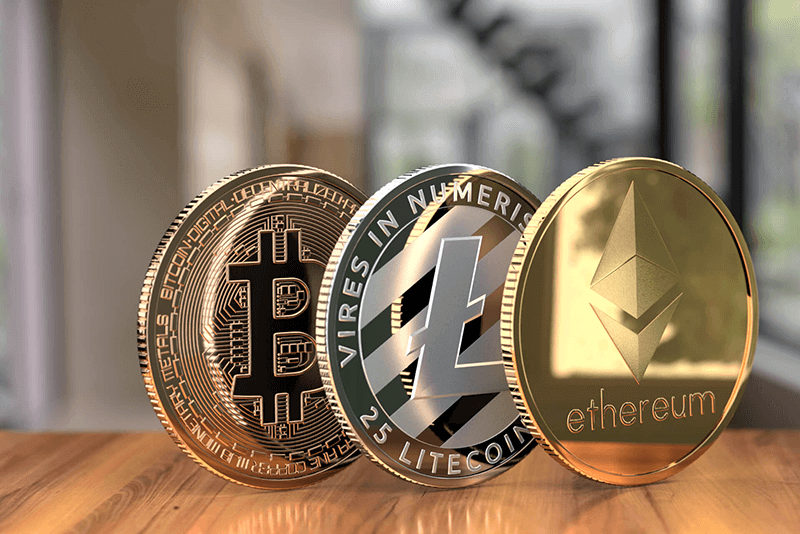Launched in 2009, Bitcoin is the first modern cryptocurrency. Bitcoin demonstrated the feasibility of blockchain-based digital currencies and attracted immediate attention from investors, the tech community, and idealists who embraced the idea of a digital currency that operated without the gates and controls imposed by banks, investment houses, and government regulators.
In the years since Bitcoin made its debut, thousands of other coins and tokens have been launched. Today’s crypto world encompasses a dazzling array of digital assets with different technical profiles and intended uses.
What are the different types of cryptocurrency? We’re so glad you asked. Here is a quick overview of cryptocurrency types.
Welcome to the crypto menagerie
Bitcoin was launched as a general-purpose currency for everyday purchases. The idea was that Bitcoin could replace government-issued fiat currencies around the world.
That’s not as unrealistic an idea as it sounds. More and more purchases are made electronically, either online or with credit and debit cards. Paper money is rapidly becoming obsolete. Why not use a currency that was designed for online transactions? In fact, several such currencies were created in the 1980s and 1990s. None gathered much of a following until Bitcoin was launched.
Today, Bitcoin is the leading cryptocurrency to replace or augment government-issued currency in everyday transactions.
That fact leads to a natural question: If Bitcoin is already there, why have thousands of additional cryptos been launched?

The answer is that few of the other cryptocurrencies are intended to compete with Bitcoin as a general-purpose currency. The coins and tokens – all but Bitcoin are known as altcoins – are intended to meet specific needs.
Coins versus tokens
We tend to use the terms “coin” and “token” interchangeably, but there is a difference.
Both coins and tokens are denominations of crypto funds. When you want to say how much fiat currency you have in your pocket, you say you have 20 pesos or 30 euros. When you want to say how much cryptocurrency you have, you say you have 12 Ether or 0.05 Bitcoins or 15 Litecoins.
As units of cryptocurrency, “coin” and “token” mean exactly the same thing.
The difference is technical. Coins are the native cryptocurrencies of the blockchain they run on. Bitcoin is a coin because it runs on the Bitcoin blockchain. Ether is a coin because it runs on the Ethereum blockchain. Tether is a token. The token maker created it to run on Ethereum, not on its own blockchain. Cardano is a coin because it runs on its own blockchain, while Uniswap is a token that runs on Ethereum.
Despite this technical difference, coins and tokens generally refer to the same thing: units of value stored on a blockchain. They are both cryptocurrencies.
Supporting Distributed Applications
Bitcoin is the oldest and largest blockchain network, but the leader in transaction volume is Ethereum, which was launched in 2015 by a team that included developers from the Bitcoin project.
The Ethereum blockchain was developed with the flexibility to hold more than just crypto coins. In fact, the blockchain could hold executable programs that could interact with its native currency, Ether. This program code is implemented as what the blockchain community calls smart contracts – though in reality, they are neither contracts nor particularly intelligent.
Bitcoin was conceived as an alternative to government-issued fiat currencies. Ethereum was conceived as a platform for application development – a sort of operating system for the creation of applications that benefit from blockchain characteristics like immutability, openness, and anonymity.

Today, Ethereum hosts thousands of distributed applications that serve a wide variety of purposes. Ethereum is the platform of choice for most decentralized finance applications, for instance, because DeFi apps need to interact with blockchain-based crypto funds.
Ethereum has its own cryptocurrency, but it’s not intended to replace euros or francs. Ether exists primarily as a way to pay processing fees for transactions on the Ethereum blockchain.
That doesn’t mean Ether is a bad coin for investors. On the contrary, it plays an essential role in Ethereum-based blockchain applications, which are becoming more numerous and handling a greater volume of transactions every day. As applications on the Ethereum platform become more important to more users, Ether tends to grow in value. Buying Ether coins is like investing in the dApp market.
Ethereum is not the only game in town when it comes to blockchain apps. Solana, Polkadot, Ergo, Algorand, and Cardano are a few of the blockchains that are able to run smart contracts. Each offers competitive features that differentiate it from Ethereum. Some handle more transactions per second, some charge lower transaction fees, some handle more complicated transactions, and so on.
Minimizing volatility
Bitcoin and other cryptocurrencies are volatile investments. Prices rise to new heights and plunge in value rapidly and frequently. Big price swings create both opportunities and risk for investors.
They also make things difficult for those who dream of using crypto funds in everyday life.
Consider a crypto restaurant that accepts various cryptocurrencies, including a made-up one called DiningCoin. On Monday, dinner for two might cost 16 DiningCoins. Due to market fluctuations, the same meal could cost 11 DiningCoins on Thursday. Or 22 DiningCoins.
If the restaurant accepts DiningCoins from customers but pays server salaries, rent, and food costs in Bitcoin, then the monthly overhead would vary unpredictably based on the relative value of the two currencies. The value of the restaurant’s inventory would change day by day, and the owner wouldn’t know how much next week’s ingredients would cost.
That’s the problem addressed by a class of coins called stablecoins.
In general, the value of each cryptocurrency is determined by supply and demand. At crypto exchanges around the world, people pay euros or francs or pounds for crypto coins, and the prices they pay establish the price of the currency.
Stablecoins are different. Their value is “pegged” to the value of another asset, typically the U.S. dollar. This means that the issuer of a dollar-pegged coin will always buy and sell the coin for $1. This has the effect of stabilizing the coin’s value versus the dollar. The coin price may rise or fall two or three percent based on user demand, but in general, stablecoins have stable prices.
The crypto market includes stablecoins that are pegged to fiat currencies, Bitcoin, and commodities like gold and real estate.
You might think that a coin that doesn’t rise or fall in value has no place in crypto investing, but experts say stablecoins serve valuable functions. Among the most interesting is that a stablecoin can deliver the benefits of cash reserve accounts used in fiat investing.
Here’s how it works. Suppose you own one Bitcoin and the value suddenly rises to 100,000 euros. If you think there’s nowhere to go but down, you can swap your Bitcoin for a stablecoin to keep the funds safe. When Bitcoin drops back to €75,000, you can purchase a Bitcoin and pocket the €25,000 as profit. When you start, you own 1 BTC. When you finish, you own 1 BTC plus €25,000 worth of stablecoins.
Utility Tokens
Some cryptocurrencies are created to fund transactions and other costs within a particular application. These are known as utility tokens.
Whenever a DeFi app makes a transaction, the underlying blockchain assesses a fee. The founders of Ethereum referred to this as a gas fee, and the name has stuck.
The publishers of blockchain-based applications must collect these fees from dApp users.
Utility tokens are often offered to investors before the project is launched in a process called a pre-sale. The funds that are raised fuel the development of the project, and the investors make profits if the dApp is popular and the price of the utility token rises.
Governance Tokens
If you buy a lot of stock in a public company, you may be offered a seat on the board of directors, where you can vote on decisions affecting the company’s future. In the crypto world, you earn a vote by purchasing governance tokens.
A DeFi project may issue governance tokens to allow stakeholders a voice in directing future decision-making. When important decisions are to be made – increasing or decreasing gas fees, for instance – coin owners vote, and the owners with more coins get more votes.
If the group of coin owners has total control, they may be known collectively as a decentralized autonomous organization, or DAO.
Non-Fungible Tokens
Crypto coins and tokens don’t actually exist. The words “coin” and “token” refer to units of value, not to individual real-world artifacts. Although government-issued bills and coins might have unique serial numbers, every Bitcoin is the same as all the others. Every Ether coin is the same as every other Ether coin. The coins are fungible, which means they are identical and can therefore be traded without regard to provenance.
The ability to create unique blockchain tokens began with Ethereum’s ERC-721 standard, which defines a kind of token that is unique, and ERC-1155, which defines collections of multiple tokens. Because these tokens are unique and cannot be substituted for one another, they are known as non-fungible tokens, or NFTs.

The NFT market has boomed in recent years as developers have found ways to associate NFTs with external objects. Today, you can buy an NFT that is a unique digital image of a cartoon character. You can buy an NFT that represents partial ownership of an artistic masterwork by Van Gogh or Rembrandt. Musical artists are selling digital music files as NFTs. A regular music file is interchangeable with any other – like a t-shirt bought at the local mall. The NFT file is like a signed t-shirt. The shirt part is identical, but the artist’s signature makes the shirt a collectible item with a unique value.
Non-fungible tokens are taking cryptocurrency and blockchain technologies into fields never imagined by the creators of the original cryptocurrencies.
All Types of Crypto for All Kinds of Uses
How many types of cryptocurrency are there? That depends on how you count them. Bitcoin, altcoins, stablecoins, governance tokens, NFTs… there’s a lot of overlap among the categories. One thing we can say with certainty is that whatever kind of investment or project you are considering, you will find many existing cryptocurrencies available to assist you. Who knows? You could end up launching your own!
NOTE
This text is informative in nature and should not be considered an investment recommendation. It does not express the personal opinion of the author or service. Any investment or trading is risky, and past returns are not a guarantee of future returns. Risk only assets that you are willing to lose.




 IOS
IOS Android
Android